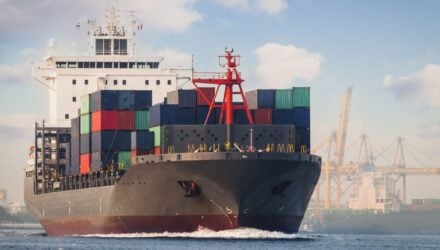
Richard Newbold wants to see and end to scenes like this
In his latest article for FleetPoint, Richard Newbold looks at the options for dealing with carbon emissions in the road haulage industry
The government is heavily focused on reducing the UK’s carbon emission figures, this results in the road haulage industry being under more scrutiny than ever. The EU Climate Change and Energy Package states that the UK’s total emissions must fall by 20% on 1990 levels by 2020, and there are additional targets to cut transport emissions by as much as 6%.
The road haulage sector is a significant consumer of fossil fuels and creating carbon emissions, currently responsible for approximately 20% of the total emissions.
The need for reducing the fuel consumption of vehicles will not only force haulage operators to develop more environmental practices, but will also impose a real opportunity for them to reduce their total costs as a result.
There are several ways in which road haulage firms could benefit from monitoring their CO2 output, which include:
- Managing fuel consumption. Being aware of fuel usage is the first step in being able to lower it.
- Evaluating environmental impact. Developing a rational environmental policy is essential in today’s business world, and evaluating your impact on the environment is key to that.
- Budgeting and planning. When planning ahead companies are able to reduce the risks that come with changes in fuel price, helping to make forecasting easier.
- Improving fleet efficiency. The more detailed analysis that is available the better companies will be able to track their carbon footprint and help improve their company image and reputation.
‘Carbon Emissions – A practical guide for fleet operators and drivers’ describes several actions that can be undertaken and some of these includes:
Practical actions to improve your emissions whilst improving fleet technology
One of the most effective ways to start improving carbon emissions is to keep the fleet updated with the latest technology. Some key changes worth consideration include:
- Low rolling resistant tyres, which provide lower energy requirements (and can cause an average of 5 per cent in carbon emissions)
- Automated manual transmissions. A computer performs clutch operation, providing up to 7-10 per cent reduction in emissions)
- The use of alternative fuels such as biofuels, solar power and electric power)
- The electrification of refrigeration and refuse bodies, which can reduce CO2 emissions by between 10 and 20 per cent per year.
The value of route planning
Another valuable way to cut carbon emissions (and one that can be carried out at virtually no expense) is to plan routes up-front. A number of key techniques can help to maximise the efficiency of this process, including maximisation of vehicle capacity, night running, having a strategy in place for missed deliveries, the use of telematics technology and the use of sat-navs to obtain the most efficient route.
Monitoring fuel usage
A key part of managing mileage and fuel is to ensure that the data the firm uses comprises of distance covered and fuel used. Using this data, it’s possible to compare performance across drivers, vehicles and routes. For larger fleets, it can be worth exploring automatic systems, as a reduction in manual data input can help to save administration costs.
In conclusion a reduction in fuel usage and carbon emissions should be essential for both haulage operators and the governing bodies that oversee the industry.
Richard Newbold is CEO of Triple A Transport and has spent thirty years in the Transport & logistics industry







